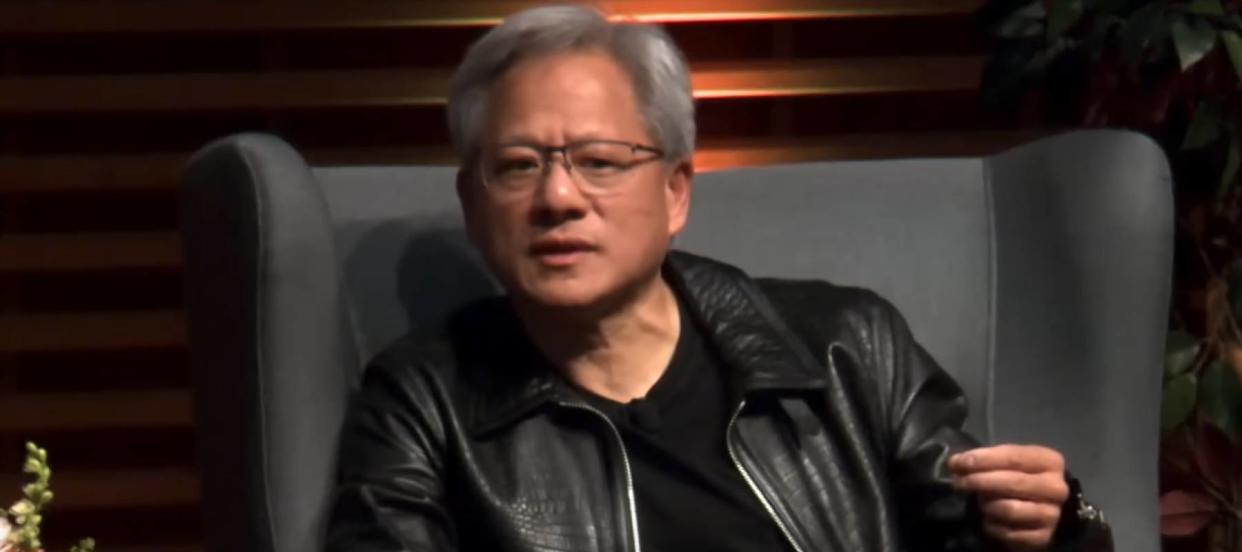'I've cleaned more toilets than all of you combined': Nvidia founder Jensen Huang says he wishes ‘pain and suffering’ on Stanford students. Here’s why and what to learn from his rise

Thanks to investors' insatiable appetite for artificial intelligence, Nvidia (NVDA) — a key player in powering AI advancements — has become a market darling. The stock has skyrocketed, showing a 70% increase year to date and a staggering 1,749% return over the past five years.
The surge in Nvidia’s share price has significantly increased the wealth of its founder and CEO, Jensen Huang. According to Forbes, Huang now ranks as the 20th richest person in the world, with a net worth of $72.2 billion.
Don't miss
Commercial real estate has beaten the stock market for 25 years — but only the super rich could buy in. Here's how even ordinary investors can become the landlord of Walmart, Whole Foods or Kroger
Cost-of-living in America is still out of control — use these 3 'real assets' to protect your wealth today, no matter what the US Fed does or says
These 5 magic money moves will boost you up America's net worth ladder in 2024 — and you can complete each step within minutes. Here's how
However, he didn’t begin his career in the billionaire club — far from it.
During a recent “View From The Top” interview at Stanford Graduate School of Business, Huang was asked why he created a flat organizational structure for his company. In his response, he reflected on his humble beginnings.
“To me, no task is beneath me because remember, I used to be a dishwasher, and I mean that, and I used to clean toilets. I mean, I cleaned a lot of toilets, I've cleaned more toilets than all of you combined, and some of them, you just can't unsee,” he said.
Huang’s light-hearted remark elicited laughter from the audience.
He continued, “I don't know what to tell you, that's life, and so you can't show me a task that's beneath me.”
Huang emphasizes his willingness to help others by sharing his approach to problem-solving. He states that his assistance is not about whether a task is beneath him but about being of service: by demonstrating his reasoning process on various challenges — whether they're ambiguous, incalculable, or seemingly daunting — he empowers others.
Resilience matters
Huang doesn’t hesitate to make bold statements. During another Stanford event, he made some intriguing remarks about expectations, pain and suffering.
Speaking at the Stanford Institute for Economic Policy Research last month, Huang was asked what advice he’d give to students to enhance their chances of success.
Rather than prescribing specific actions, he shared this insight: "One of my great advantages is that I have very low expectations."
Huang went on to note that low expectations aren’t typical among Stanford graduates — even though he himself is an alumnus.
“Most Stanford graduates have very high expectations, and you deserve to have high expectations because you came from a great school. You were very successful. You were top of your class. Obviously, you were able to pay for tuition. And then you’re graduating from one of the finest institutions on the planet. You’re surrounded by other kids that are just incredible,” he elaborated.
However, Huang highlighted a significant drawback to this mindset, stating, “People with very high expectations have very low resilience. And unfortunately, resilience matters in success.”
Read more: 'Baby boomers bust': Robert Kiyosaki warns that older Americans will get crushed in the 'biggest bubble in history' — 3 shockproof assets for instant insurance now
‘I hope suffering happens to you’
Huang believes that the ability to endure setbacks and suffering is crucial for success. However, he’s unsure how to effectively teach this resilience to students — it may be something they need to experience firsthand.
“I don’t know how to teach it to you except that I hope suffering happens to you,” he said.
He shared that, although he grew up in an environment that fostered success, he also faced many challenges. Within his company, he uses the term "pain and suffering" with glee, seeing such challenges as opportunities to strengthen and refine the character of the organization.
For Huang, true greatness in individuals comes from character, not intelligence, and character is shaped by experiences of adversity.
“And so if I could wish upon you — I don’t know how to do it — but for all of you Stanford students, I’d wish upon you ample doses of pain and suffering,” he said.
Put simply: no pain, no gain.
What to read next
Jeff Bezos and Oprah Winfrey invest in this asset to keep their wealth safe— you may want to do the same in 2024
'It's not taxed at all': Warren Buffett shares the 'best investment' you can make when battling rising costs — take advantage today
Car insurance premiums in America are through the roof — and only getting worse. But 5 minutes could have you paying as little as $29/month
This article provides information only and should not be construed as advice. It is provided without warranty of any kind.
